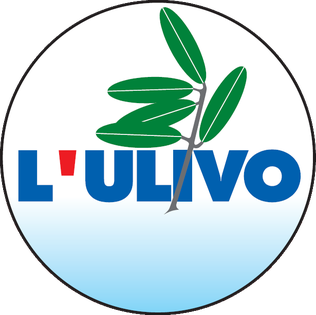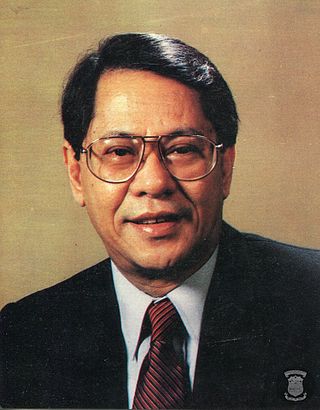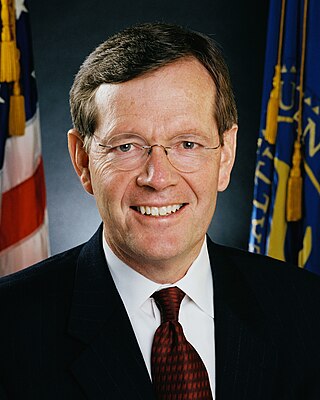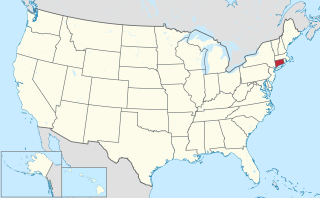Related Research Articles

Abraham Lincoln was an American lawyer, politician, and statesman who served as the 16th president of the United States from 1861 until his assassination in 1865. Lincoln led the Union through the American Civil War to defend the nation as a constitutional union and succeeded in defeating the insurgent Confederacy, abolishing slavery, bolstering the federal government, and modernizing the U.S. economy.

The 1996 United States presidential election was the 53rd quadrennial presidential election, held on Tuesday, November 5, 1996. Incumbent Democratic President Bill Clinton defeated former Senate Majority Leader Bob Dole, the Republican nominee, and Ross Perot, the Reform Party nominee and 1992 Independent presidential candidate.

The Bharatiya Janata Party is a political party in India and one of the two major Indian political parties alongside the Indian National Congress. Since 2014, it has been the ruling political party in India under the incumbent Prime Minister Narendra Modi. The BJP is aligned with right-wing politics, and its policies adhere to Hindutva, a Hindu nationalist ideology. It has close ideological and organisational links to the Rashtriya Swayamsevak Sangh (RSS) volunteer paramilitary organisation. As of September 2023, it is the country's biggest political party in terms of representation in the Parliament of India as well as state legislatures.

Haradanahalli Doddegowda Deve Gowda is an Indian politician who served as the 11th prime minister of India from 1 June 1996 to 21 April 1997. He was previously the 14th Chief Minister of Karnataka from 1994 to 1996. He presently is a Member of Parliament in the Rajya Sabha representing Karnataka. He is the national president of the Janata Dal (Secular) party. Born in a farming family, he joined the Indian National Congress party in 1953, and remained a member until 1962. He was imprisoned during the Emergency. He became President of the state unit of Janata Dal in 1994, and was considered to be a driving force in the party's victory in Karnataka. He served as the 8th Chief Minister of Karnataka from 1994 to 1996. In the 1996 general elections, no party won enough seats to form a government. When the United Front, a coalition of regional parties, formed the central government with the support of the Congress, Deve Gowda was unexpectedly chosen to head the government and was elected Prime Minister. During his tenure as prime minister, he also served as Home Minister for some time. His prime ministerial tenure lasted for less than a year. After his prime ministerial tenure, he was elected to the 12th (1998), 14th (2004), 15th, and 16th Lok Sabha, as Member of Parliament for the Hassan Lok Sabha constituency. He lost Lok Sabha elections in 2019 from Tumkuru but has been elected to Rajya Sabha since.

The Olive Tree was a denomination used for several successive centre-left political and electoral alliances of Italian political parties from 1995 to 2007.

Shankar Dayal Sharma was an Indian lawyer and politician from the state of Madhya Pradesh who served as the ninth president of India, from 1992 to 1997.

The 1995 election of members to the Senate of the Philippines was the 25th election to the Senate of the Philippines. It was held on Monday, May 8, 1995, to elect 12 of the 24 seats in the Senate. Filipinos protected the ballot boxes with their lives and campaigned against traditional politicians who used bribery, flying voters, violence, election rigging, stealing of ballot boxes, etc. The Philippine National Police (PNP) listed five people dead and listed more than 200 hotspots before and 300 hotspots during the election.

The Social Democratic Party is a social-democratic political party on the Faroe Islands, led by Aksel V. Johannesen.
Mary Cal Hollis is an American activist. She was a third-party candidate for President of the United States in the 1996 U.S. presidential election, representing the Socialist Party USA (SPUSA) with running mate Eric Chester. Hollis and Chester also received the endorsement and ballot line of Vermont's Liberty Union Party, receiving 674 votes (80.1%) in their primary. Hollis appeared on the syndicated radio program Democracy Now! with two other socialist presidential candidates for a discussion and debate. The SPUSA ticket received 4,765 votes in the general election.

Humberside County Council was the county council of the non-metropolitan county of Humberside in northern England.

Barack Obama served three terms in the Illinois Senate from 1997 to 2005, when he was elected to the United States Senate. During this part of his career, Obama continued teaching constitutional law part time at the University of Chicago Law School as he had done as a Lecturer from 1992 to 1996, and as a Senior Lecturer from 1996 to 2004.

The ninth legislative assembly election of Tamil Nadu was held on 21 January 1989. Dravida Munnetra Kazhagam (DMK) won the election and its leader M. Karunanidhi, became the Chief Minister. It was his third term in office. The DMK was in power only for a short term, as it was dismissed on 31 January 1991 by the Indian Prime minister Chandra Shekhar using Article 356 (Otherwise) of the Indian Constitution.
In Indian politics, the Third Front refers to temporary alliances which began in 1989 among smaller parties to offer a third option to Indian voters. These alliances arose to challenge the Indian National Congress (INC) and Bharatiya Janata Party (BJP).

The 1996 Utah gubernatorial election took place on November 5, 1996. Republican nominee and incumbent Governor Michael Leavitt won the election.

Arkansas is a state in the South Central region of the United States. Since its admission to the Union in June 1836, it has participated in 46 United States presidential elections. In the realigning 1860 election, Arkansas was one of the ten slave states that did not provide ballot access to the Republican nominee, Abraham Lincoln. Subsequently, John C. Breckinridge won the state by a comfortable margin, becoming the first third party candidate to win Arkansas. Soon after this election, Arkansas seceded from the Union and joined the Confederacy. Following the secession, Arkansas did not participate in the 1864 presidential election. After the Civil War, Arkansas was readmitted to the Union in 1868. In the 1872 election, all six of Arkansas's electoral votes were invalidated due to various irregularities including allegations of electoral fraud.

Connecticut is a state in the New England region of the United States. One of the original Thirteen Colonies, Connecticut has participated in all fifty-nine U.S. presidential elections since the American Revolution. In the early days of the United States, Connecticut was known for supporting the conservative Federalist Party. In the Second Party System, Connecticut leaned towards the anti-Jackson candidates. Following the Civil War, Connecticut was a swing state for a long time until 1896. Thereafter until 1932, Connecticut was a Republican stronghold. During this period, Connecticut Republican Party chairman J. Henry Roraback built up a political machine which was "efficient, conservative, penurious, and in absolute control".

Florida is a state in the South Atlantic region of the United States. Since its admission to the Union in March 1845, it has participated in 43 United States presidential elections. Florida participated in the presidential election for the first time in 1848. In this election, the Whig Party won Florida's three electoral votes with 57.20% of the vote, the only time the Whig Party won in Florida. In the realigning 1860 election, Florida was one of the ten slave states that did not provide ballot access to the Republican nominee, Abraham Lincoln. In the 1860 presidential election, John C. Breckinridge emerged victorious in Florida, winning 62.23% of the vote. Shortly after this election, Florida seceded from the Union and became a part of the Confederacy. Due to the secession, Florida did not participate in the 1864 presidential election. With the end of the Civil War, Florida rejoined the Union and participated in the 1868 presidential election. The 1868 election was the sole presidential contest in Florida not decided by popular vote, but instead by the state legislature. Florida voted for the Republican nominee in all three presidential elections during the Reconstruction era.

Since Wisconsin's admission to the Union in May 1848, it has participated in 44 U.S. presidential elections. In 1924, Robert M. La Follette became the only third-party presidential candidate to win in Wisconsin, taking 53.96% of the popular vote. Since 1988, Wisconsin has leaned towards the Democratic Party in presidential elections, although Republican Donald Trump won the state by a margin of 0.77 percentage points. Wisconsin is tied with Michigan and Pennsylvania for the longest active streak of voting for the winning candidate, last voting for a losing candidate in 2004.

Since Wyoming's admission to the Union in July 1890, it has participated in 33 United States presidential elections, always having 3 electoral votes. Wyoming was the first place in America to grant women the right to vote, in 1869, well before it joined the Union in 1890. This was a significant milestone for women's suffrage and paved the way for other states to follow suit. As a state with a strong Republican tradition, Wyoming tends to favor the Republican Party in presidential elections. It has consistently voted for Republican candidates in recent decades and is considered a reliably red state. When Wyoming participated in its first presidential election in 1892, Republican candidate Benjamin Harrison won the state with 50.52% of the vote. Harrison's Democratic opponent, Grover Cleveland, who went on to win the election, did not even appear on the ballot in Wyoming.
References
- ↑ "Statistical Report on General Election, 1996" (PDF). Election Commission of India. p. 7. Retrieved 6 May 2017.